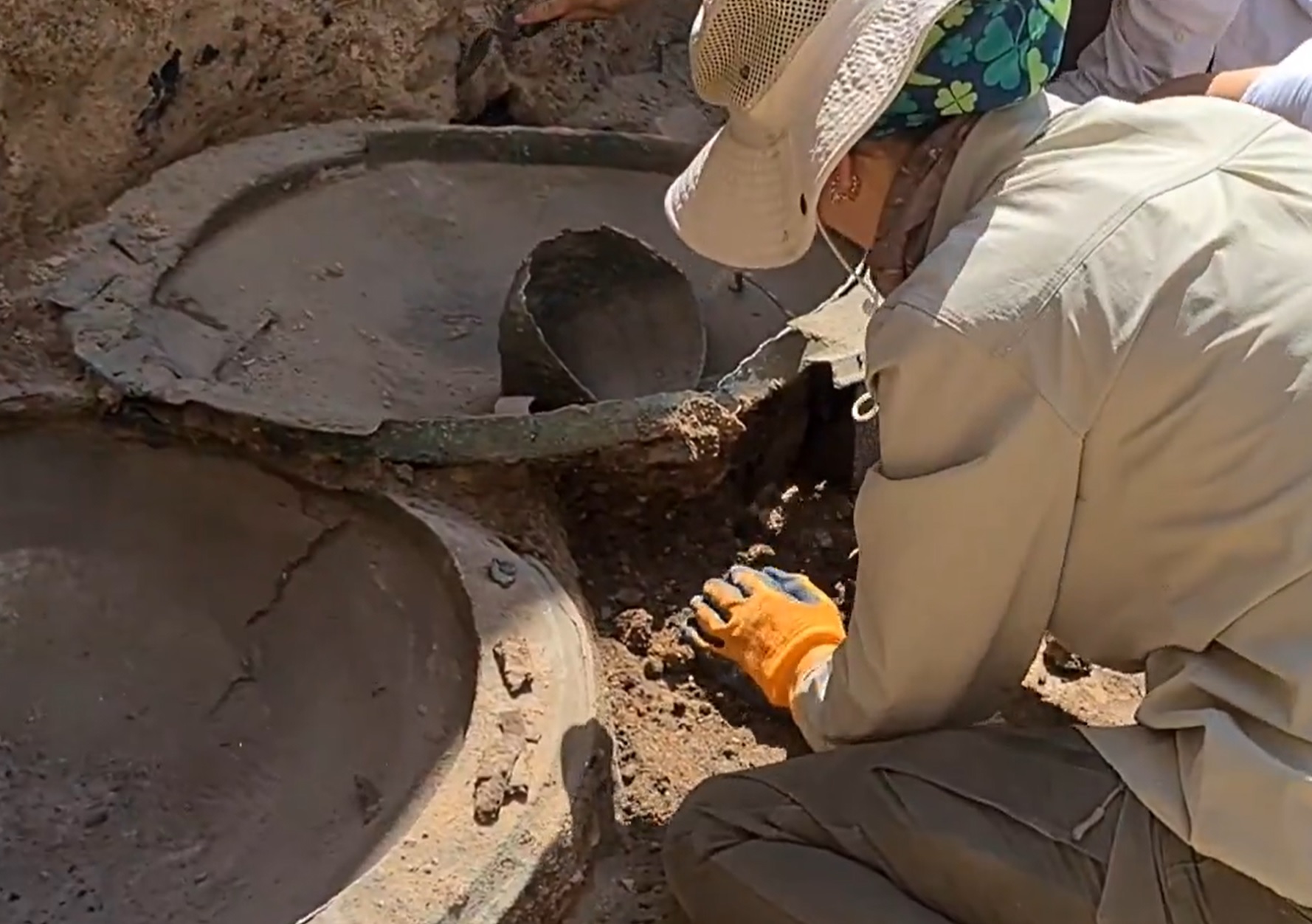According to a press statement issued by Mehmet Nuri Ersoy, Minister of Culture and Tourism of The Republic of Türkiye, archaeologists have uncovered bronze shields from the Urartu kingdom during excavations at the fortress of Ayanis.
The Urartu were an Iron Age kingdom that emerged during the mid-9th century BC in the Eastern Anatolia Region around Lake Van.
At its peak, the Urartu kingdom was one of the most powerful kingdoms of the ancient Near East, extending over the modern frontiers of Turkey, Iran, Iraq, and the Republic of Armenia.
Archaeologists have recently conducted a series of excavations at the fortress and settlement of Ayanis, located near the village of Ağartı in Van province.

Ayanis was constructed in the mid-7th century BC by the last great King of Urartu, Rusa II. As well as providing a defensive purpose, Ayanis also served as a cult centre for the worship of Haldi, one of the chief deities of Urartu religion along with Teisheba and Shivini.
During the 2024 excavation season, archaeologists uncovered three bronze shields dedicated to Haldi at the site of a temple complex and sanctuary.
According to Professor Dr. Mehmet Işıklı from Atatürk University, the objects were found beneath collapsed mudbrick walls at a depth of 6-7 metres on the floor of a room.
Archaeologists suggest that the collapsed walls are the result of a series of major earthquakes that caused the destruction of Ayanis Castle in the 7th century BC.
Professor Işıklı said: “There is also a bronze helmet among the artefacts found. We believe that the decorated helmet served a ceremonial purpose in dedication to Haldi”.
Header Image Credit : Minister Mehmet Nuri Ersoy
Sources : Ministry of Culture and Tourism of The Republic of Türkiye





